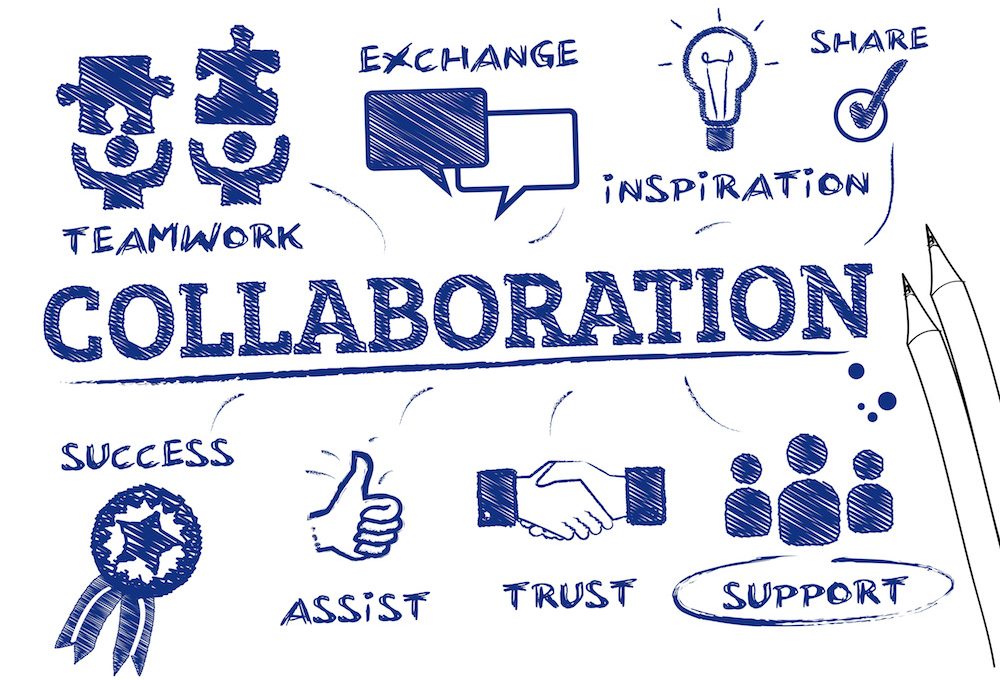
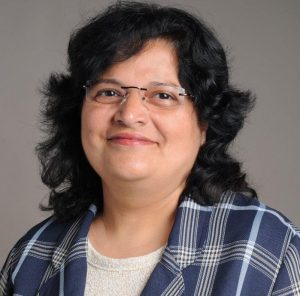
Idobro Impact Solutions is a social enterprise that aims to develop innovative solutions to social challenges in India. Founded in 2017, Idobro focuses on leveraging technology to create a sustainable impact on education, health, and livelihoods. The organisation and its team of experienced professionals work closely with communities to understand their needs and co-create solutions that address their unique challenges. It has implemented multiple projects, including developing mobile applications for health and education, creating digital content for skill-based training, and providing access to finance for small businesses. As part of its strong commitment to social impact and focus on innovation, it collaborated with Glenmark Foundation for the Glenmark Nutrition Awards. CSR Mandate spoke with Karon Shaiva, Founder of Idobro Impact Solutions, to know more about the work and the awards.
Tell us about Idobro. What is the vision driving its existence?
Idobro Impact Solutions is a social enterprise based in India that is a catalyst for innovations and collaborations that benefit people and the planet. It was formed as an active and deeper model of engagement to facilitate and implement market-based solutions that:
(i) Reduce the information divide which exists between the private and development sector to connect, communicate, and collaborate.
(ii) Promote products, services, events, and media with social and environmental impact into the consideration set of consumers, corporate, and community.
What is its mission and focus areas?
Our mission is to measure and multiply the socio-environmental impact of women, social and green (WSG) initiatives through markets, capacity, linkages and solutions. We have designed and developed programmes in the following focus areas:
(a) Entrepreneurship Development
(b) Community Development Projects and Alliances
(c) Value-based Citizenship for Individuals and Institutions
We take an ecosystem-based approach that emphasises advocacy and engagement. We aim to overcome systemic barriers, offer market-based solutions, and build partnerships driven by shared values. With this approach, we strive to foster a sustainable and inclusive society that empowers individuals and communities alike.
Enlighten us about RISE Infinity Foundation (RIF).
A hybrid organisation, the RISE Infinity Foundation (RIF), was established in 2014 to strengthen individuals and institutions to take positive action for the Sustainable Development Goals (SDGs) and so restore and recreate a better world and greener planet for all.
Together, Idobro and RISE have an end-to-end approach that seeks to overcome systemic barriers and forge alliances driven by the RISE’s shared values – Responsible, Inclusive, Sustainable and Ecosystem-friendly.
Over the past 13 years, driven by the RISE shared values – Responsible, Inclusive, Sustainable and Eco-System friendly, we have created a footprint in seven countries and 24 States of India. Our local and global experience in urban and rural settings, with online and offline tools for corporate and non-profit, government, and academic initiatives have co-created a 360-degree action platform. This has advanced advocacy, engagement, and collaboration with long-term outcomes and value to our communities, enterprise members, partners, and associates, reaching out to over two million lives, as documented in our Decade of Impact Report.
What are the ways Idobro collaborates with non-profit organisations?
Partnerships are core to our approach “Think Different, Act Together”. All our programmes and projects are based on the PECO Model. Let me share more information about it before we proceed further. We designed the PECO Model for Poverty Alleviation and Ecosystem Restoration. It must be everyone’s problem and needs tackling at three levels in society – Citizenship at the individual level, Entrepreneurship at the organisation level, and Partnership at the ecosystem level. O is the joint Ownership of all stakeholders that binds them to “Multiply Our Impact”.
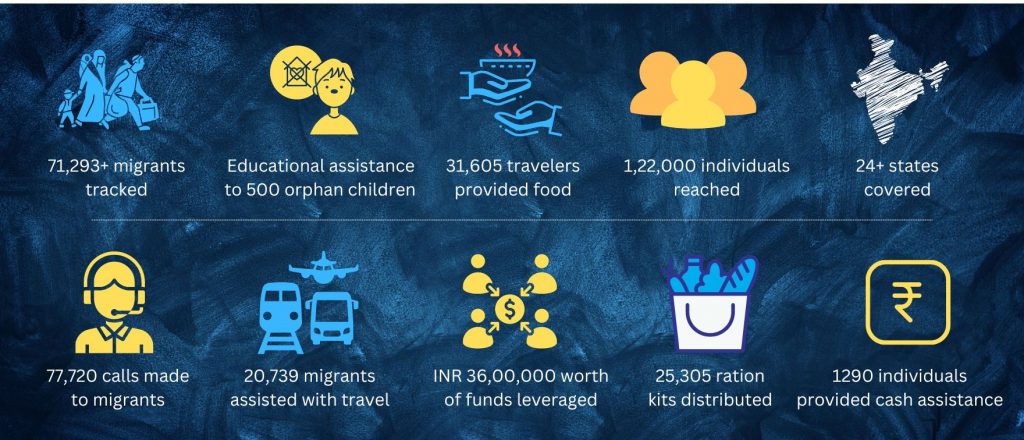 One of our largest initiatives is the Maha PECOnet coalition convened by UNICEF Maharashtra at the onset of the pandemic with 65+ development partners.
One of our largest initiatives is the Maha PECOnet coalition convened by UNICEF Maharashtra at the onset of the pandemic with 65+ development partners.
Beyond COVID, the partners have 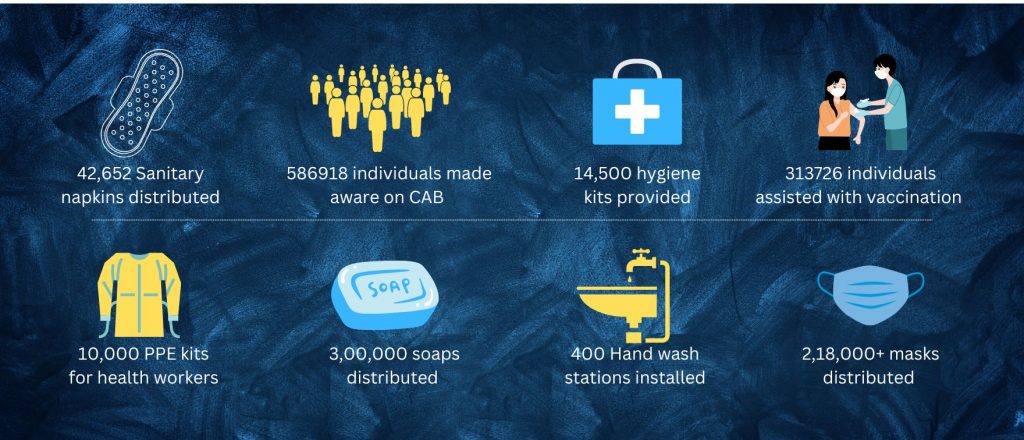 collectively fought and faced floods, cyclones, landslides, heatwaves, and measles outbreaks.
collectively fought and faced floods, cyclones, landslides, heatwaves, and measles outbreaks.
RISE Infinity Foundation is the Secretariat of the platform. Our network has now grown to over 150 partners representing every district of Maharashtra. We are now working to strengthen capacities to go beyond relief and response to focus on peacetime planning and preparedness.
How long have you been forging alliances between like-minded organisations with shared values?
Over the past 13 years, driven by the RISE shared values – Responsible, Inclusive, Sustainable and Eco-System friendly, we have created a footprint in seven countries and 24 States of India. Our local and global experience in urban and rural settings, with online and offline tools for corporate and non-profit, government, and academic initiatives have co-created a 360-degree action platform. This has advanced advocacy, engagement, and collaboration with long-term outcomes and value to our communities, enterprise members, partners, and associates, reaching out to over two million lives, as documented in our Decade of Impact Report.
How has the organisation evolved since its inception?
We started as a social enterprise in 2009, and in 2014, we founded RISE Infinity Foundation. We have also established the PECOWorld Community. It convenes annually at the RISE World Summit, a platform for thought leadership and collaboration. RWS23 was a milestone 10th edition with over 10,000 participants from 71 countries participating in 100+ sessions facilitated by 118 visionary partners and 200+ experts.
What is the impact Idobro has had thus far?
We have made a significant impact by executing projects in seven countries and 24 States of India, positively impacting over 2.3 million individuals, 220,000 students, 5,000+ entrepreneurs, and 500+ institutions and organisations. Over the past 13 years, we have emerged as a valuable resource centre for research, implementation, stakeholder relations, and evaluation. Using a critical lens of Gender, Innovation, Finance, and Technology (GIFT), we provide deeper insights into diversity, inclusion, and sustainability issues.
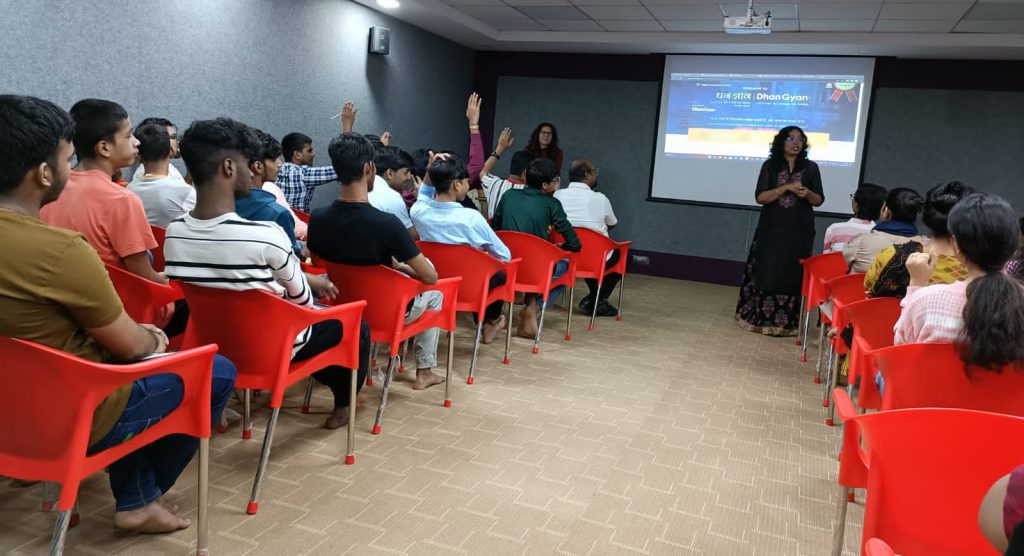
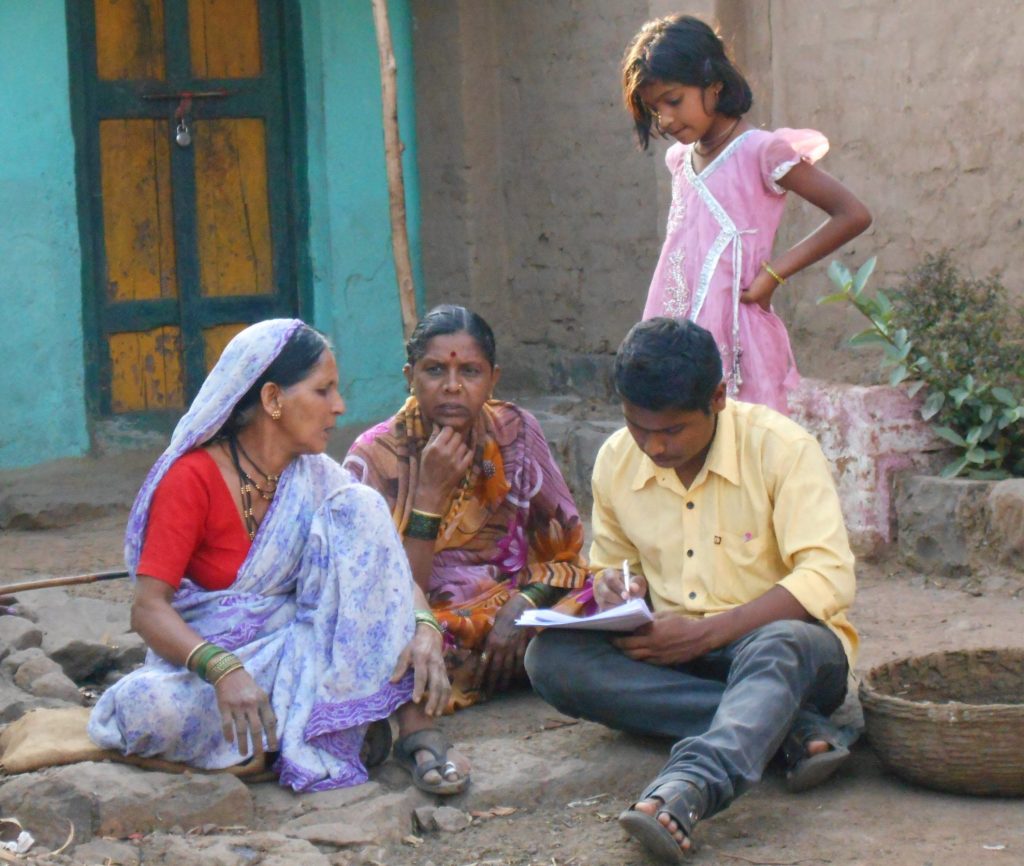
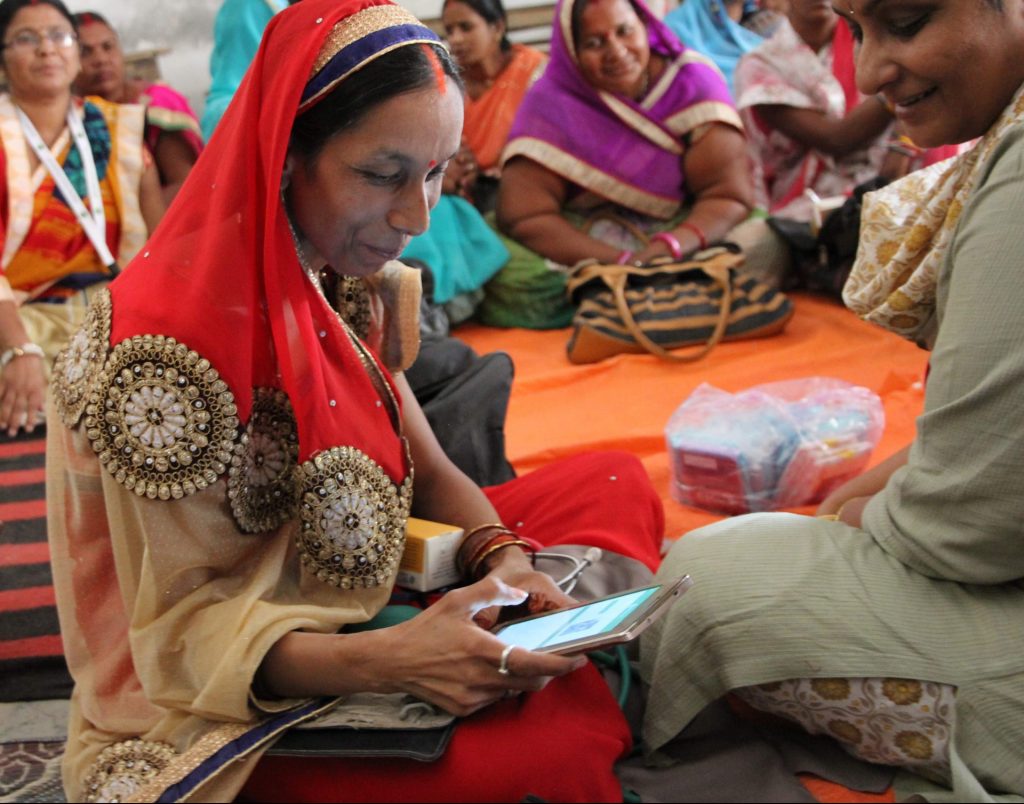
Instituted around the theme of ‘Healthier Children, Healthier World’, Glenmark Foundation, the CSR arm of Glenmark Pharmaceuticals, is actively working towards improving child health and reducing infant/child mortality. The Foundation has a 360-degree approach to achieving this mandate. Idobro has been associated with the Foundation for ten years, creating impact together on the ground and across stakeholder groups. Our approach to addressing the critical issue of malnutrition involves a comprehensive mix of innovative interventions. We strongly believe that every effort counts in making a difference in people’s lives.
How do collaborative approaches tackle worldwide challenges, engaging private sector, citizens, gender, and youth?
Billions of dollars have been spent on aid across decades, if not centuries, and we are still grappling with poverty, violence, and disasters. There is a pressing need to find new solutions to the challenges the world faces and take them to every corner and cluster that requires them. As is often quoted, no institution, community, or country can do this alone. Collaboration is the answer. However, successful models for collaborations are few. Moreover, we have traditionally relied on philanthropy and cross-subsidisation to support humanitarian and development interventions. While technology and finance are key enablers, traction is a result of human acceptance and influence. Hence, the call for new development paradigms that is human-centric, where we have every individual and institution as part of the equation, even if it is only the realisation that we are part of the problem and would like to be a part of the solution as well. The private sector has a key role to play, but so do citizens. While the SDGs form a comprehensive canvas, it is the cross-cutting issues of gender and youth that take priority. These are our two primary groups of focus along with social entrepreneurs for holistic community and institutional development. It has also been captured in the World Economic Forum – “Davos Agenda Closes with Calls for New Models of Public-Private Cooperation”.
What is your relationship and association with Glenmark Foundation and its contribution to various child-health initiatives to impact the lives of those in dire need? What has this association achieved so far?
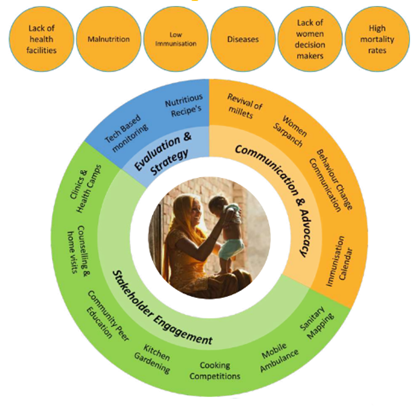 Instituted around the theme of ‘Healthier Children, Healthier World’, Glenmark Foundation, the CSR arm of Glenmark Pharmaceuticals, is actively working towards improving child health and reducing infant/child mortality. The Foundation has a 360-degree approach to achieving this mandate. Idobro has been associated with the Foundation for ten years, creating impact together on the ground and across stakeholder groups.
Instituted around the theme of ‘Healthier Children, Healthier World’, Glenmark Foundation, the CSR arm of Glenmark Pharmaceuticals, is actively working towards improving child health and reducing infant/child mortality. The Foundation has a 360-degree approach to achieving this mandate. Idobro has been associated with the Foundation for ten years, creating impact together on the ground and across stakeholder groups.
Our approach to addressing the critical issue of malnutrition involves a comprehensive mix of innovative interventions. We strongly believe that every effort counts in making a difference in people’s lives.
One key intervention with Glenmark has been the Communication Catalyst, which engaged college students to design innovative communication strategies for NGOs. We understand the power of communication in spreading awareness and inspiring action toward a healthier and more nourished community.
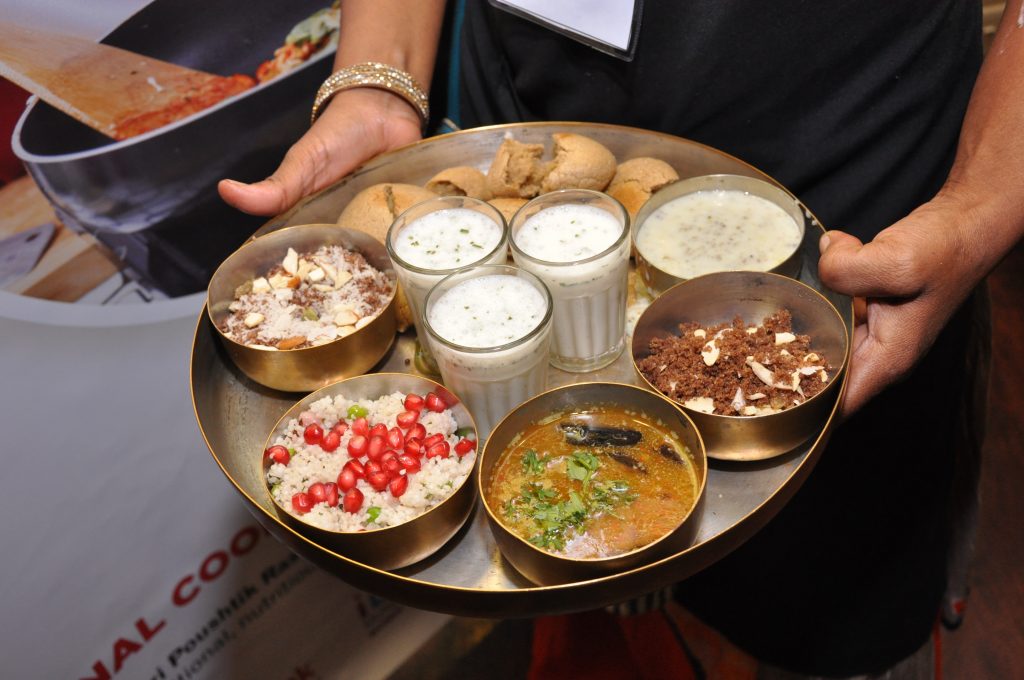 Another intervention, the Meri Poushtik Rasoi, aims to identify and curate a collection of nutritious recipes from across the country. We believe that access to diverse and healthy food options is essential in combatting malnutrition.
Another intervention, the Meri Poushtik Rasoi, aims to identify and curate a collection of nutritious recipes from across the country. We believe that access to diverse and healthy food options is essential in combatting malnutrition.
Furthermore, the Glenmark Nutrition Awards identifies and celebrates impactful health and nutrition projects from all corners of the country. We believe in recognising and honouring the hard work and dedication of those making a difference in their communities.
We have several other interventions in place, all geared toward addressing the core issue of malnutrition. We remain committed to this cause. We are constantly exploring new and innovative ways to make a positive impact.
Can you provide more information on the criteria to select the NGOs and institutions recognised at the Glenmark Nutrition Awards 2023?
The primary criteria for the selection of the NGOs were based on the below parameters:
- Innovation: How unique were the strategies used to improve nutrition amongst the groups the organisations were working with? It was either a method of cultivation or distinctive awareness campaigns about nutrition.
- Impact: What was the impact of their work/innovation on improving the nutrition among the groups they are working with? This was mainly the numbers reached or lives impacted throughout the year along with the behavioural change the innovation might have brought among the individuals/groups.
- Inspiration: What level of inspiration could other organisations/groups derive from their work or innovation; Possibility of Replicability of their innovation/model.
How were they evaluated for their impact on tackling malnutrition in mothers and children?
As part of the selection process, the NGOs’ impact on tackling malnutrition in mothers and children was evaluated. One of the criteria used to evaluate their impact was to assess the effectiveness of their work or innovation in improving nutrition among the groups they are working with. This evaluation focused on the numbers reached or lives impacted throughout the year and the behavioural change the innovation might have brought among individuals or groups. The Selection Committee looked for evidence of the measurable impact and sustainability of the interventions implemented by the NGOs to address malnutrition in mothers and children. NGOs that demonstrated a significant positive impact on the nutrition and well-being of the target groups were given higher scores on this criterion.
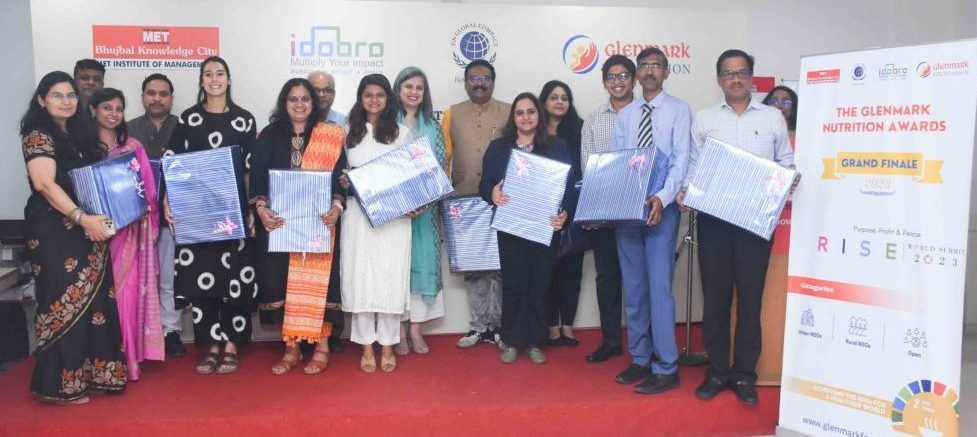
What initiatives and strategies have these NGOs and institutions implemented to address malnutrition?
Various initiatives and strategies have been and are implemented to address malnutrition, ranging from direct interventions of distributing fortified meals to interventions using technology in the form of apps.
For instance, one of the NGOs was working with government and charity cancer hospitals, enabling them with trained paediatric oncology nutritionists and food aid so that more children may win the battle against cancer. With the FoodHeals App, a first-of-its-kind tech platform that automates clinical nutritional functions, they can create an ecosystem that enables medical and nutrition teams to collaborate more effectively and make specialised nutritional care more accessible to children. They also freely share their breakthroughs and experience with healthcare practitioners so that they may use this knowledge to save thousands of more children.
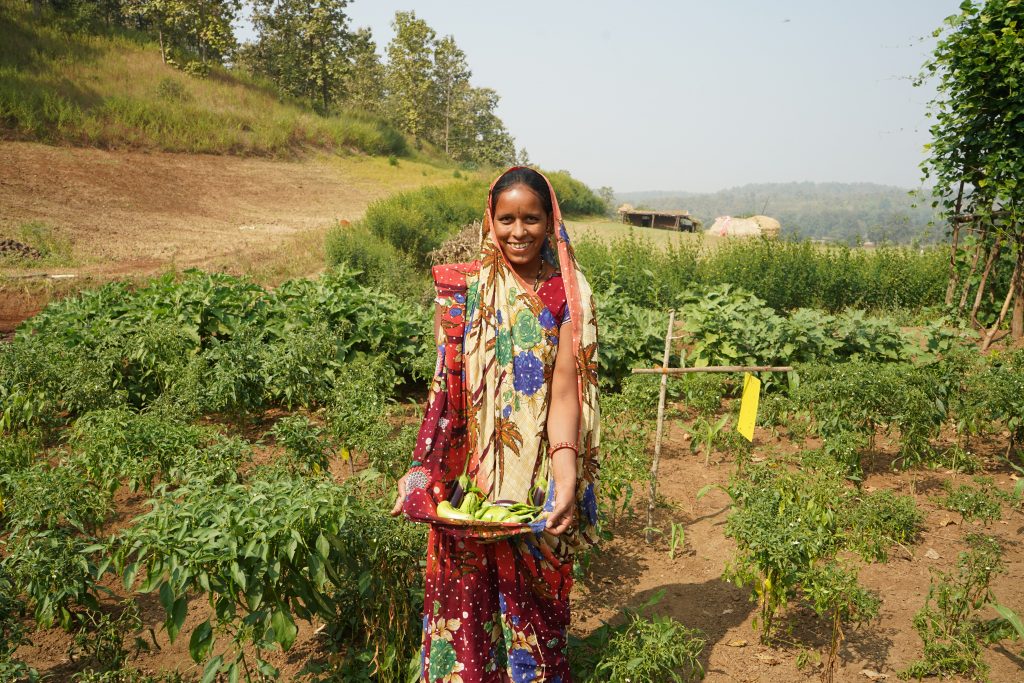 Another innovative initiative trains women, known as Community Health Entrepreneurs (CHE), in health, hygiene, nutrition, and common illnesses. They are taught how to grow kitchen gardens, provide access to nutritious foods, and use a 360-degree approach to tackle malnutrition. Each CHE is reaching out to 1500 women. The kitchen garden approach is increasingly used to reduce
Another innovative initiative trains women, known as Community Health Entrepreneurs (CHE), in health, hygiene, nutrition, and common illnesses. They are taught how to grow kitchen gardens, provide access to nutritious foods, and use a 360-degree approach to tackle malnutrition. Each CHE is reaching out to 1500 women. The kitchen garden approach is increasingly used to reduce 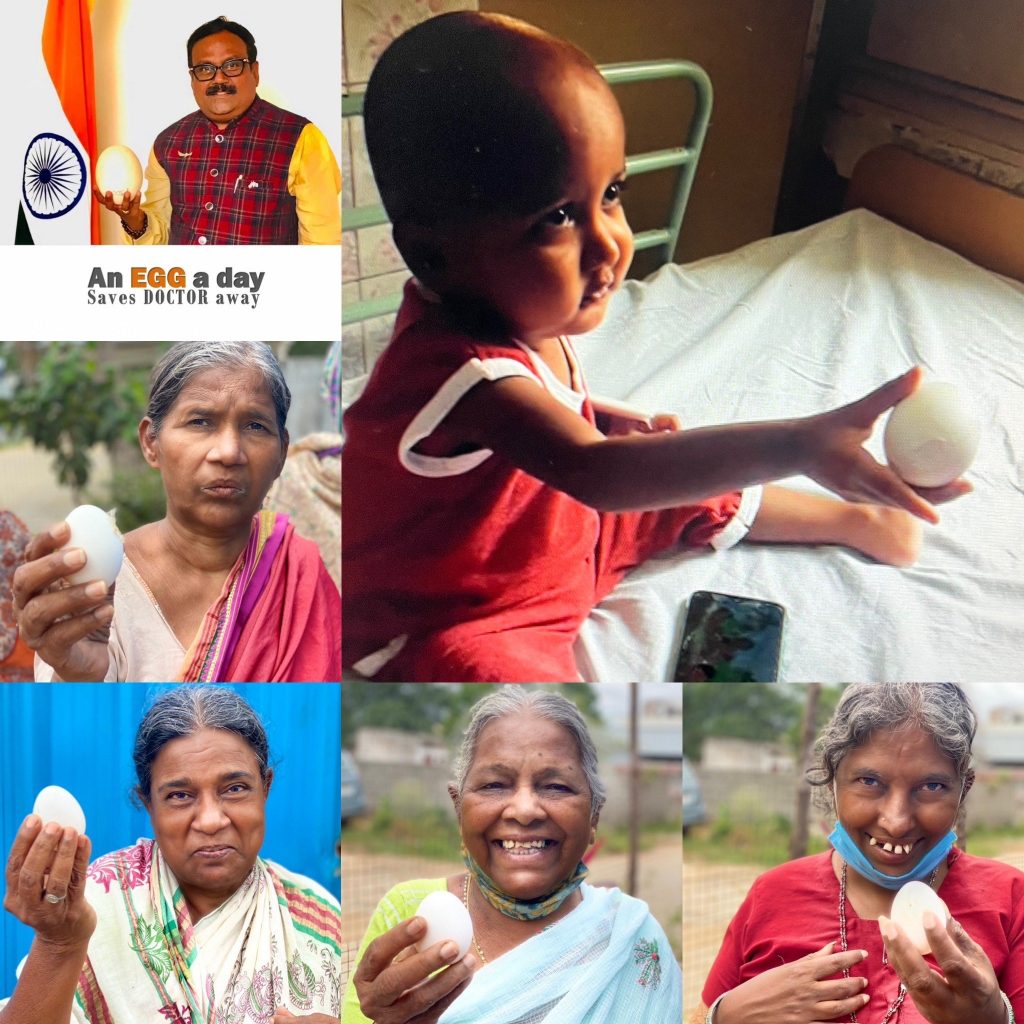 malnutrition, create nutritional awareness, and introduce microgreens.
malnutrition, create nutritional awareness, and introduce microgreens.
Another innovative approach uses the concept of an egg bank – making eggs available to children and lactating mothers in the community, orphanages, and old-age homes – as they are high in protein and vitamins. We also saw a more collaborative approach between municipal corporations, hospitals, the Ministry of Education, and women and child health departments.
Another innovative approach was establishing Nand Ghars – modern, upgraded Anganwadis where you find clean toilets, play areas, awareness workshops, kitchen gardens and more. Some NGOs are conducting awareness programmes on nutrition, including demonstrations of cooking, and talking about important inclusions in the diet, e.g., moringa and millet.
We saw one NGO having an in-house production unit to prepare Medical Nutrition Therapy (MNT), a WHO-recommended Energy Dense Nutritious Food for managing Severe Acute Malnutrition (SAM). They have developed a cost-effective new therapeutic soya-based food product to tackle malnutrition. They have also introduced a telemedicine service to tackle the problem.
How have these efforts improved the health and well-being of mothers and children?
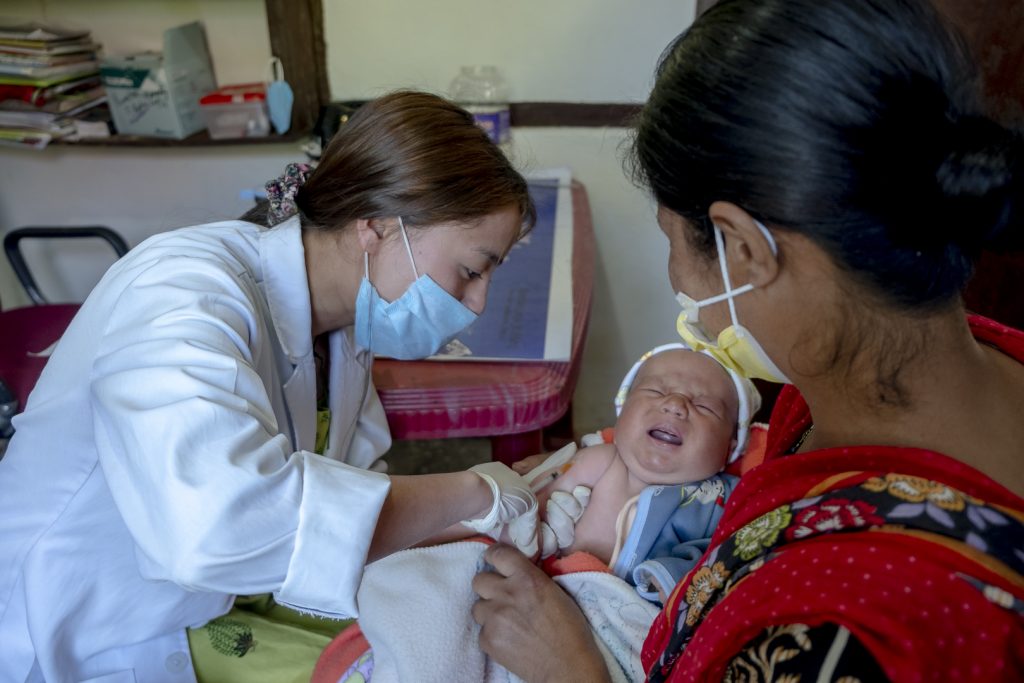
Through various interventions launched along with their NGO partners, Glenmark Foundation aims to encourage positive health-seeking behaviour among pregnant women and mothers with infants and caregivers towards the right nutrition, including good hygiene practices and ensuring complete immunisation for children. Glenmark Foundation has positively 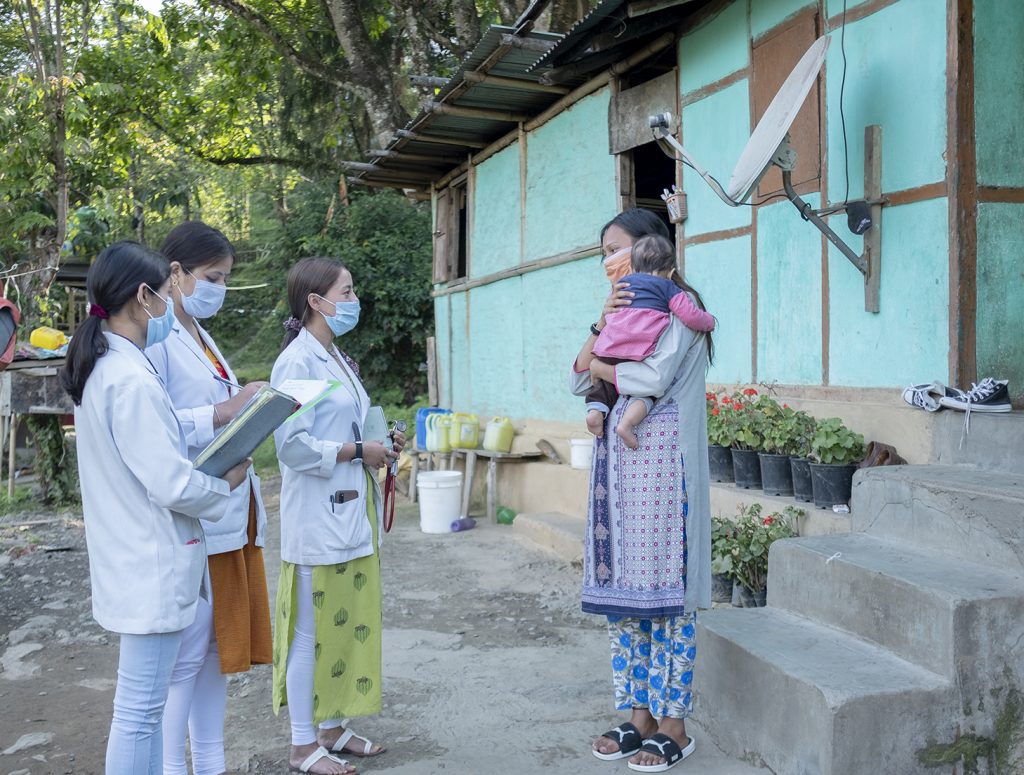 impacted over 1.9 million lives through its various child health initiatives over the years.
impacted over 1.9 million lives through its various child health initiatives over the years.
What are Idobro and Glenmark Foundation’s plans to alleviate the challenges in child and maternal health in India?
To effectively combat malnutrition, it is crucial to implement projects on the ground and strengthen the overall ecosystem around it. This involves sharing knowledge and best practices, fostering collaborations, and building communities of practice.
One of our key strategies to achieve this is through knowledge exchange. We believe that by facilitating the exchange of ideas and experiences, we can foster innovation and accelerate progress toward our goal of eradicating malnutrition. This can involve sharing research findings, best practices, and lessons learned from ongoing projects which we or others in the sector have implemented. We are committed to leveraging various platforms for knowledge exchange, including conferences, workshops, and webinars that will build the capacity of our grassroots workers in communities.
Our approach towards strengthening the ecosystem for malnutrition involves a multi-pronged strategy that includes knowledge exchange, implementing projects on the ground, and building communities of practice around MCH. Glenmark Foundation and Idobro remain committed to this cause, and we believe that by working together, we can create a brighter and healthier future for all.
In addition to knowledge exchange, we recognise the importance of implementing projects on the ground, including working with communities to identify and address the root causes of malnutrition. We believe that a participatory approach involving communities in the design, implementation and evaluation of projects is essential in ensuring their sustainability and effectiveness.
Building communities of practice around Maternal and Child Health (MCH) is another important aspect of our approach. We recognise that MCH is a critical area that requires focused attention and collaboration. By building communities of practice around MCH, we can leverage the collective expertise of stakeholders and create a shared vision for a healthier future. It involves engaging with healthcare providers, policymakers, researchers, and community leaders to share knowledge and best practices.
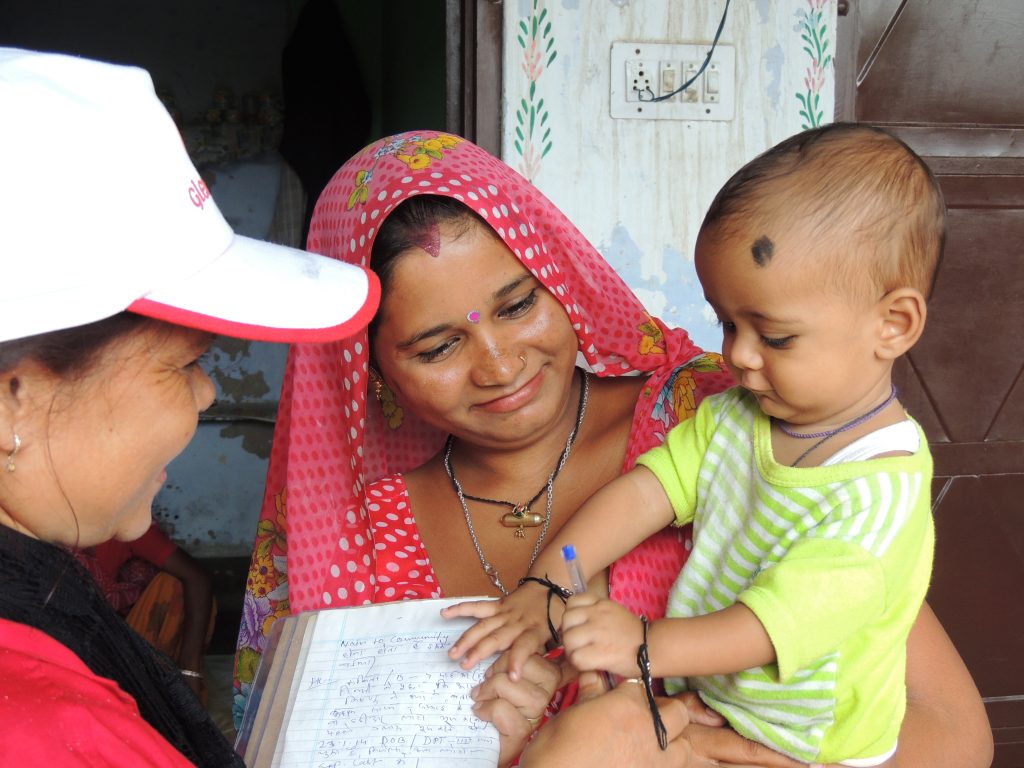
Our approach towards strengthening the ecosystem for malnutrition involves a multi-pronged strategy that includes knowledge exchange, implementing projects on the ground, and building communities of practice around MCH. Glenmark Foundation and Idobro remain committed to this cause, and we believe that by working together, we can create a brighter and healthier future for all.

